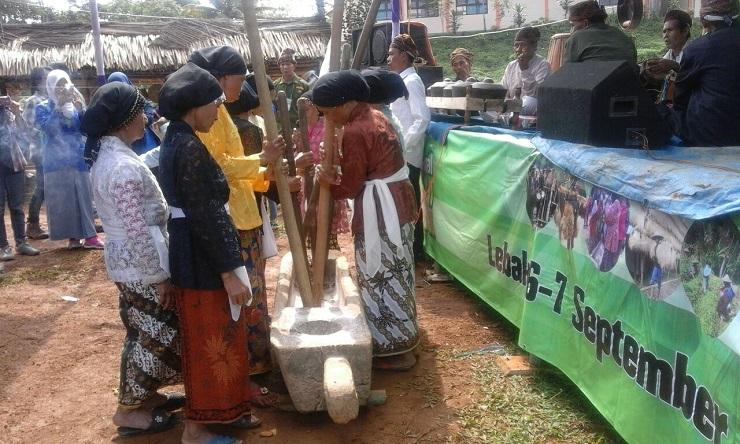ASIACALLING
Indigenous wisdom, food self sufficiency in Java
"Relying on indigenous wisdom to grow and harvest enough rice for its almost two thousand residents each year. "
Yudi Rachman

For decades the village of Cirompang in West Java has been largely self-sufficient. Relying on indigenous wisdom to grow and harvest enough rice for its almost two thousand residents each year.
KBR Journalist, Yudi Rachman, visited the Indonesian village to find out more.
The women here at Cirompang village in Banten province, are making music with their mortars – a tool used for pounding rice.
It’s a sign of the harvest to come.
Cirompang village is located in an area of indigenous land near Halimun Salak National Park in West Java.
Even when the seasons are erratic or there is a drought, there is never a food shortage here.
That’s thanks to the advice of the indigenous elders, or ‘olot,’ people like Abah Amir, who choose the date to plant and harvest each year – based on the constellations.
“So we calculate the planting time based on the stars,” he says, “When the rice is blooming the pests usually start attacking. So we have a way, using the stars to avoid that.”
The villagers believe the method can predict pests, such as birds, worms and mice, as well as drought.
Abah Amir says pesticides and other poisons used to kill pests are not permitted in the village, so they use a different way, based on the knowledge of their ancestors.
“To anticipate pests we change the date of planting because the stars are always moving. When the pests are out they can eat the rice,” he says, “In the village, no single pest is allowed to be killed because they have the right to life. If you kill the a pest bad luck will follow.”
For centuries, the indigenous people of Cirompang have lived in this area. The space is 637 hectares and incudes rice fields, vegetable gardens and indigenous forest.
Rice is normally planted twice a year, using these traditional methods.
Including the Angklung music that signifies this time, rice is harvested here the old-fashioned way. The rice seeds are planted and harvested by hand, no tractors or gardening tools are used.
As for irrigation, the villagers depend on rainfall and the river.
There’s certain rules in place to protect the rainwater, trees from the forest, for example, can’t be cut down. Amir says the farmers have certain days off as well.
“We cannot go to the rice field on Fridays and Sundays, only for gardening,” he says.
When it’s time for harvest the grains are distributed to residents in the village and stored in the barns, there are about 100 of those. If a villager runs out of grain, they can ask for extra rice held in the barns.
The harvest feeds all 1,690 residents of Cirompang each year. They are also prohibited from selling their harvest in the market, says Abar Amir.
“Rice can be stored in the barn for long time,” explains Amir, “And the variety of padi is not allowed to be sold. The seeds did not come from the government or anyone, but directly from nature.”
The indigenous community of Cirompang have also began to plant other vegetables – peppers, tomatoes, cabbages, cucumbers, and onions – to meet their daily needs. And they also breed fixer in the river.
Cirompang is living proof the ancestors knew a thing or two about food self-sufficiency.
- Yudi Rachman
- Cirompang Village
- Indonesia
- food self sufficiency
Komentar (1)
KBR percaya pembaca situs ini adalah orang-orang yang cerdas dan terpelajar. Karena itu mari kita gunakan kata-kata yang santun di dalam kolom komentar ini. Kalimat yang sopan, menjauhi prasangka SARA (suku, agama, ras dan antargolongan), pasti akan lebih didengar. Yuk, kita praktikkan!
Agus Prana Muliaa year ago
Political stability and security will be achieved when food needs are met properly. Success of Sundanese values and culture. Baktos Ki Guru Agus Prana Mulia, Bogor.